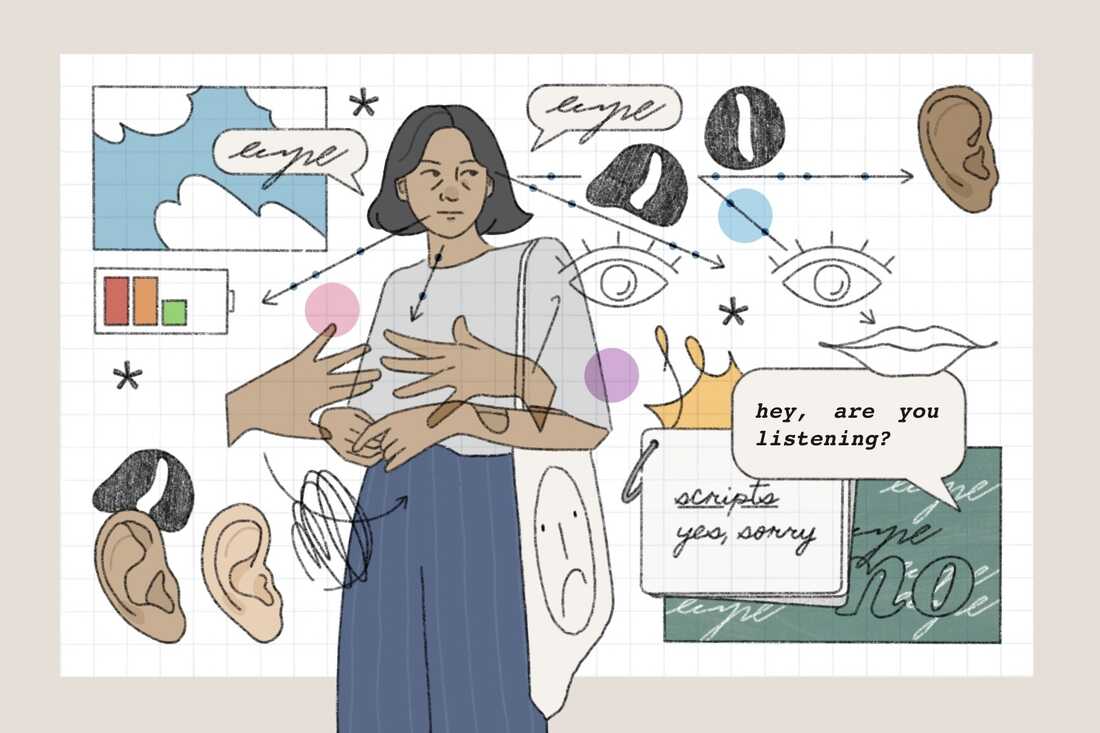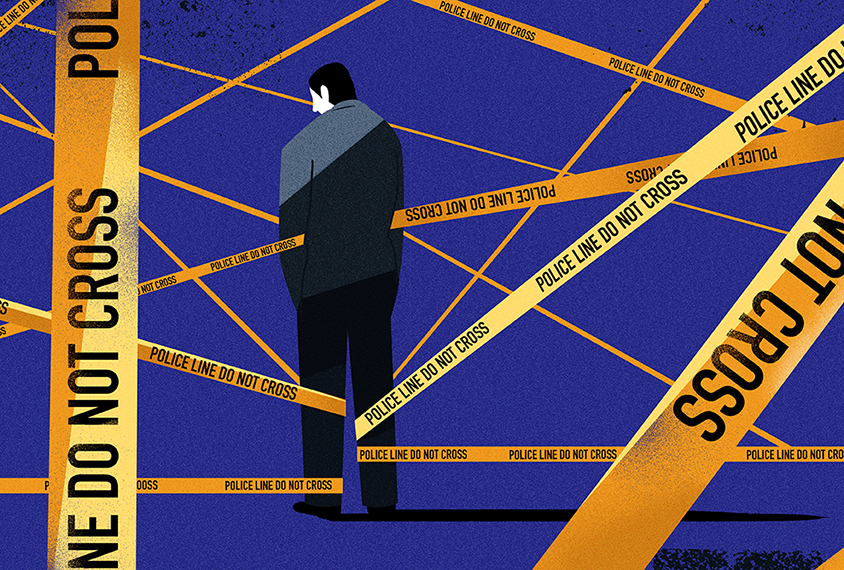By Evi Tsakali,
In this article I will call the readers to get in the shoes of a police officer; imagine that you are interrogating someone. You are interrogating a person who rarely makes eye contact (or not at all), a person who seems unusually anxious and agitated, and who -bizarrely to you- speaks honestly, sometimes to the point of bluntness. You may think that I am painting this picture to lead you to a profiling that corresponds to a suspicious person; let me tell you, that person may just be autistic…

A survey of 93 defense lawyers conducted by the Autism Research Centre of the University of Cambridge concluded that only half of autistic people were considered to be vulnerable adults, despite being entitled to by law. In the meantime, in under half of the cases when a jury was involved, the said jury was informed that the defendant is in the spectrum. According to Dr Rachel Slavny-Crass, leader of the study, the research shows that “autistic adults are not receiving fair treatment within the criminal justice system. Without reasonable adjustments and support, this could place them at a significant disadvantage”. Regarding the jury, another member of the research team, Dr Carrie Allison, added: “It is vital that jurors are provided with information about a defendant’s autism and its implications, otherwise they are likely to misunderstand atypical behavior exhibited by the defendant in court. Similarly, judges may fail to take into consideration mitigating factors that might otherwise influence sentencing”.
Before examining the means of action towards mitigating the issue, it is necessary to understand beforehand the reasons why people in the autism spectrum may commit offences. First and foremost, people in the spectrum tend to misunderstand social cues; eye contact that may not bother a neurotypical individual may seem threatening, suspicious, or even alarming to them. The aforementioned goes hand in hand with their social naivety; misunderstanding other people’s motives may lead them to become -despite themselves- the unwitting accomplices of offenders. I intentionally used the phrasing “despite themselves” because -and that leads us to the next reason- autistic people are characterized by their rigid adherence to rules. Hence, they tend to become extremely agitated and may react in an aggressive way when someone breaks (or even just bends) a rule. Last but definitely not least, autistic people’s difficulty accepting unexpected changes (that could be -for example- transport delays or a slight change in schedule) could also lead to atypical behavior that may result in offences.

Having examined the potential reasons that may bring people in the autism spectrum before the criminal justice system, it is evident that basic practices of the police could be of devastating effect to the person in question; the use of handcuffs may be extremely frightening, and the use of loud sirens can cause a sensory overload; and those are just examples. When dealing with autistic people – especially as suspects – it would be beneficial for both parties if police officers and criminal justice professionals keep facial expressions and gestures to a minimum, avoid touching the suspect or -even worse – shout at them, and -of course- the use of sarcasm and irony is a no-go. The officer needs to address the autistic interviewee in a direct, clear way, and ambiguity is to be avoided at all costs; the latter also applies when autistic people are brought to the court as witnesses. Besides, no speculations are to be made and no leading questions are to be asked, since an autistic person will not answer about what “could” or “would” happen; professionals of the field ought to prefer questions starting with “when”, “where” or “how”.
For more information on the matter, the United Kingdom’s National Autistic Society has issued an enriched guide for police officers and staff of the sector.
References
- Autistic defendants are being failed by the criminal justice system. cam.ac.uk. Available here
- Criminal Justice – a guide for police officers and professionals. autism.org.uk. Available here




